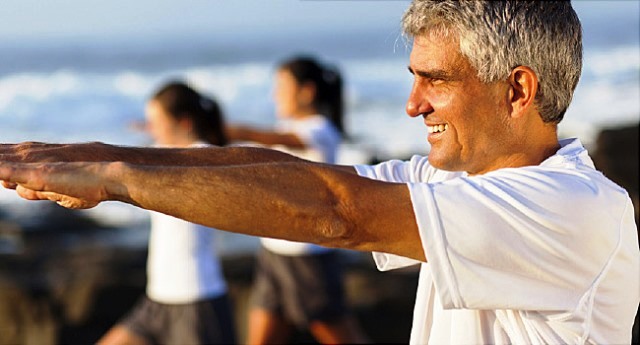Older men could be at three-fold higher risk of sustaining a secondary fracture within a year of the first, but even moderate physical activity can help prevent as well as boost their bone strength, two separate studies show.
The findings highlight men’s bone health which is often overshadowed by the focus on osteoporosis and fracture risk in women.
The first study, involving 17,721 men and 57, 783 women over 50 years of age, showed that while the risk of subsequent fractures at the hip, spine, forearm and the upper arm was elevated in both men and women, it was highest in men within one year of a first fracture.
Conversely, the risk for women with a prior fracture was only 1.8 times higher compared to women without one.
“These results underscore the importance of timely recognition of fracture events especially in men, a population in whom secondary prevention is under-implemented,” said Suzanne Morin, Associate Professor McGill University in Canada.
“This tells us we should be focusing on anti-fracture strategies early after the fracture event,” she added.
The second study, which evaluated nearly 1,000 older men — with a mean age of 84 — revealed that men who spent more time engaged in at least moderate physical activity (including housework and some sports such as walking, golf, softball and tai-chi) had higher bone strength measures with resultant lower risk of fracture.
“Older men are at a higher risk of life-altering fractures. This was a breakthrough to finally have data to show that physical activity among men late in life was related to bone strength and fracture risk, therefore showing that remaining active over the life-course could reduce the risk of these fractures,” said Lisa Langsetmo, Senior Research Associate at the University of Minnesota.
The results were presented at the American Society for Bone and Mineral Research (ASBMR) 2018 Annual Meeting in Montreal.









